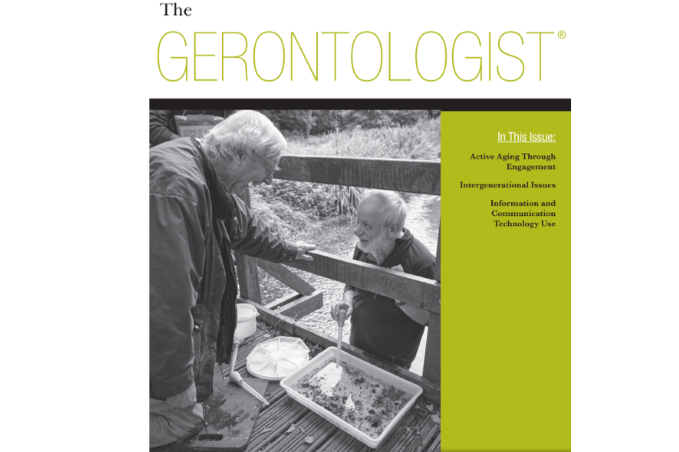Special Issue: Interdisciplinary Pathways: Humanities, Arts, and Gerontology
Editors: Ulla Kriebernegg, Editor, Humanities & Arts, The Gerontologist; and Guest Editors, Sally Chivers and Stephen Katz
This special issue of The Gerontologist explores gerontology and the humanities (including the arts, history, and philosophy) as fields of exchange, rather than as divided or opposing disciplines, whose close (but often unacknowledged) historical contact has created age-making across multiple cultural forms (theater, art, film, fiction, media production, music) and professional practices (texts, conferences, research, teaching, care, policy). While scholars of aging in the humanities adapt gerontological insights, ideas, data, and anti-ageist critiques in their work, gerontological researchers borrow from the humanities its theories, methods, futuristic speculations, and imaginative poetics. Early examples of intersecting literary and scientific textuality were Elie Metchnikoff’s optimistic discussion of Goethe and William Osler’s famous “The Fixed Period” (Trollope) speech. Today, research on health and illness, dementia, retirement, long-term care, population aging, and death and dying continues to widen the opportunities for shared dialogue and discovery between gerontology and the humanities, sometimes through hybridized areas such as the gerontological humanities, and the medical and health humanities.
The Gerontologist invites contributions to this special issue that highlight significant interactions between gerontology and the humanities, and call attention to how and where their interdisciplinary paths have led to new ways and genres of understanding, representing, expressing, analyzing, challenging, and imagining the meanings of aging and old age. Examples of topics might include but are not limited to the following questions:
-
Where have humanities and gerontology scholars adapted or appropriated each other’s languages, concepts, methods, and vocabularies and with what consequences?
-
Where have gerontological ideas and research emerged in the cultures and experiences of everyday life through popular poetry, drama, fiction, film, media, and visual arts?
-
How have older researchers and writers in the humanities and gerontology informed and advanced interdisciplinary dialogue?
-
What can gerontologists and humanities scholars learn from how their respective fields engage with critical issues of age-based intersectional disadvantage, inequality, colonialism, and exclusion?
-
What future collaborations are possible between the humanities and gerontology that expand both of their horizons?
-
What has been the relationship between historical ideas about and approaches to aging and old age and the emergence of gerontology or the modern humanities?
To avoid duplicative topics and to enable us to develop a comprehensive issue, a 250-word abstract describing the paper’s intent should be submitted. Please be sure to include all author names and contact information. Our team of editors will identify abstracts of interest and selected authors will be invited to submit full manuscripts. Full manuscripts will be evaluated using The Gerontologist’s usual peer-review process.
Before submission, authors should carefully read the Author Guidelines for The Gerontologist. Abstracts should be submitted electronically through the online submission system according to the following timetable:
Abstracts due: July 1, 2022
Full manuscripts due: January 16, 2023
Issue published: December 2023
Link to the Gerontologist: website


